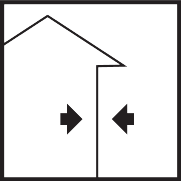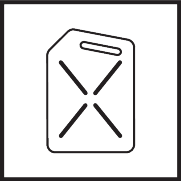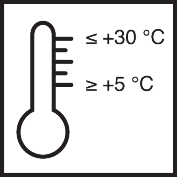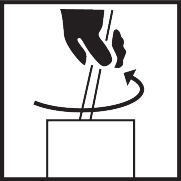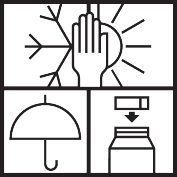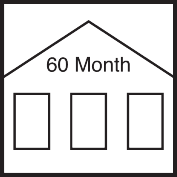Article No. 264501
Solvent-based, decorative oil for wooden decking & garden furniture

Product specifications
On delivery
The stated values represent typical product characteristics and are not to be construed as binding product specifications.
Field of application
- For use on interior and exterior wood
- Building elements with no or limited dimensional stability
- (Garden) furniture and wooden decking
- e.g. teak, bangkirai, massaranduba, iroko, oak, larch, ipé & Douglas fir
- Thermally treated wood
- We recommend the use of WPC Impregnation Oil on WPC, bamboo and Resysta
Properties
- Repels water
- Weatherproof and moisture-regulating
- Prevents wood from drying out
- Pigmented versions prevent greying
- Brilliant colours
- Intense colours for a uniform colour finish
- Easy to apply
- Subsequent treatment without sanding
-
Preparation
-
Substrate requirements
Wood building elements with limited or no dimensional stability: wood moisture content max. 18%
-
Preparations
Wood which is rich in active substances should be weathered for a few weeks or cleaned with Wood Cleaner before being treated for the first time in order to prevent delays in the drying process.
Use an agent such as Wood Cleaner to remove any dirt, grease and old coatings that could form a film, making sure not to leave any residue.
Planed wood surfaces should be sanded carefully before applying the first coat in order to ensure good adhesion and a homogeneous colour finish. Remove all sanding dust.
Clean any greyed wood surfaces with Wood Revitalizer.
Remove algae with Green Growth Remover*. (*Use biocides safely. Always read the label and product information before use.)
Exterior wood that needs to be protected against soft rot and blue stain must be pre-treated with a suitable wood preservative* (*Use biocides safely. Always read the label and product information before use).
-
-
Application
-
Stir well.
Apply by brush.
Treat all sides (of decking) on the first coat if possible.
Apply the product using a varnish brush, a surface brush or a (cotton) cloth in the direction of the grain.
Take up any excess material with a dry brush or cloth after a maximum of 30 minutes.
Apply a second coat once the first has dried (approx. 12 hours).
Use material with the same batch number on contiguous surfaces (mix material of different batches beforehand), otherwise slight differences in colour, gloss and texture may occur.
Seal opened containers well and use contents as soon as possible.
-
Application instructions
-
Check colour, adhesion and compatibility with the substrate by setting up a trial area.
Rainfall may cause water soluble substances to bleed from wood that is rich in such substances, e.g. oak, red cedar, afzelia, redwood, etc. This may lead to the discolouration of light-coloured masonry or render.
The clear variant does not protect against UV radiation (greying) and should therefore be used only on wood elements not directly exposed to weather (i.e. protected against direct sunlight, precipitation and wind). If a clear coating is desired on a directly exposed exterior surface, apply several coats and refresh at regular intervals.
Due to the different covering properties of white and pastel varnish colours, the optical appearance may vary depending on the substrate. It must be checked in advance whether discolouration of the varnish may occur due to substances contained in the wood.
Due to the low UV protection of these colour shades, shorter maintenance intervals must be expected.
In order to take account of and clarify these issues, a trial surface must be prepared in order to ensure that the surface meets expectations.
Reapplications are required at least once a year in areas exposed to weathering.
Although the various colours are matched to a specific type of wood, they can easily be used on other types of wood as well, in which case the look of the colour will differ from the corresponding sample.
Cut end-grain surfaces at the bottom to create a water-drip edge.
Apply two subsequent coats of end-grain wood preservative to end-grain wood and cut surfaces in order to protect them against moisture.
Risk of spontaneous ignition (DGUV Information 209-046).
Do not use in the same workplace as NC-based varnishes or stains. Collect contaminated textiles (e.g. cleaning cloths, work clothing, dust bags) in fireproof waste containers and dispose of in a fireproof manner (under water). -
Drying
Dust-dry: approx. 4 hours
Overcoating: approx. 12 hoursPractice values at +20 °C and 65% relative humidity.
Low temperatures, poor ventilation and high humidity delay drying.
-
Thinning
Ready to use
-
Working tools / cleaning
-
Brush with natural bristles, flat brush, lint-free cotton cloth
-
Clean tools immediately after use with thinner and brush cleaner.
Ensure that any residue from cleaning is disposed of correctly.
-
Storage / shelf life
-
If stored unopened in its original container in a cool, dry place and protected against frost, the product will keep for at least 5 years.
Use the contents of open containers as quickly as possible.
-
Usage
-
60 - 80 ml/m² per coat, depending on the absorption capacity of the wood
One coat is sufficient for renovations.
-
General information
-
DIN EN 71-3 "Migration of certain elements":
This product complies with the limits for the migration of heavy metals to children's toys according to DIN EN 71-3 and thus fulfils one of several further requirements for the safety of children's toys according to the EU "Toy Directive" (2009/48/EC).On planed larch and softwoods with a high resin content, the coating may have reduced adhesion and resistance to weathering. This is especially the case on horizontal year rings, knots and areas of winter growth that are high in resin. Maintenance must be carried out more frequently on these surfaces.
The only remedy for this is pre-weathering or very coarse sanding (P80).
If these wood types are rough-sawn, considerably longer maintenance intervals are to be expected.On terrace surfaces in the area of swimming pools, the increased exposure to chlorine, cleaning agents and intensive moisture can lead to reduced adhesion and weathering of the coating. Shorter maintenance and renovation intervals must be expected here.
-
-
Disposal instructions
-
Larger quantities of leftover product should be disposed of in the original containers in accordance with the applicable regulations. Completely empty, clean containers should be recycled. Do not dispose of together with household waste. Do not allow to enter the sewage system. Do not empty into drains.
-
-
Safety / regulations
-
For further information on the safety aspects of transporting, storing and handling the product and on disposal and environmental matters, please see the current Safety Data Sheet.
-




